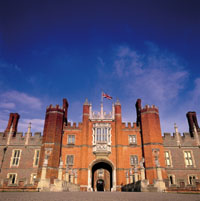|
The airborne equipment will be used during three cycle races, including the men’s Olympic road cycling race, over a distance of 250?km, on July 28, and the women’s race, covering 140?km, on the following day. Recently it was put through its paces during test events. ‘Unique challenges’“The London 2012 road cycling events present some unique challenges for us, especially given the length of the course and attendant issues around logistics and traffic management”, commented Martin Benké, UK network services director for Airwave. “We were able to deploy a solution by using radio repeater equipment operated from two light aircraft flying above, which relayed radio signals from users on the ground to the control centre and vice versa. The talk traffic was in turn taken back to the Locog technical operations centre in Canary Wharf via VoIP.” During the test events, Airwave deployed two additional mobile base stations at sites to the south-west of London, providing coverage to various venue control centres. These were connected back into the main Apollo network. A temporary and entirely separate analogue UHF/VHF radio system was also deployed, providing communications between the event control centre and the race convoy as it moved around the course.
(中国集群通信网 | 责任编辑:陈晓亮) |

 Airborne
Airborne